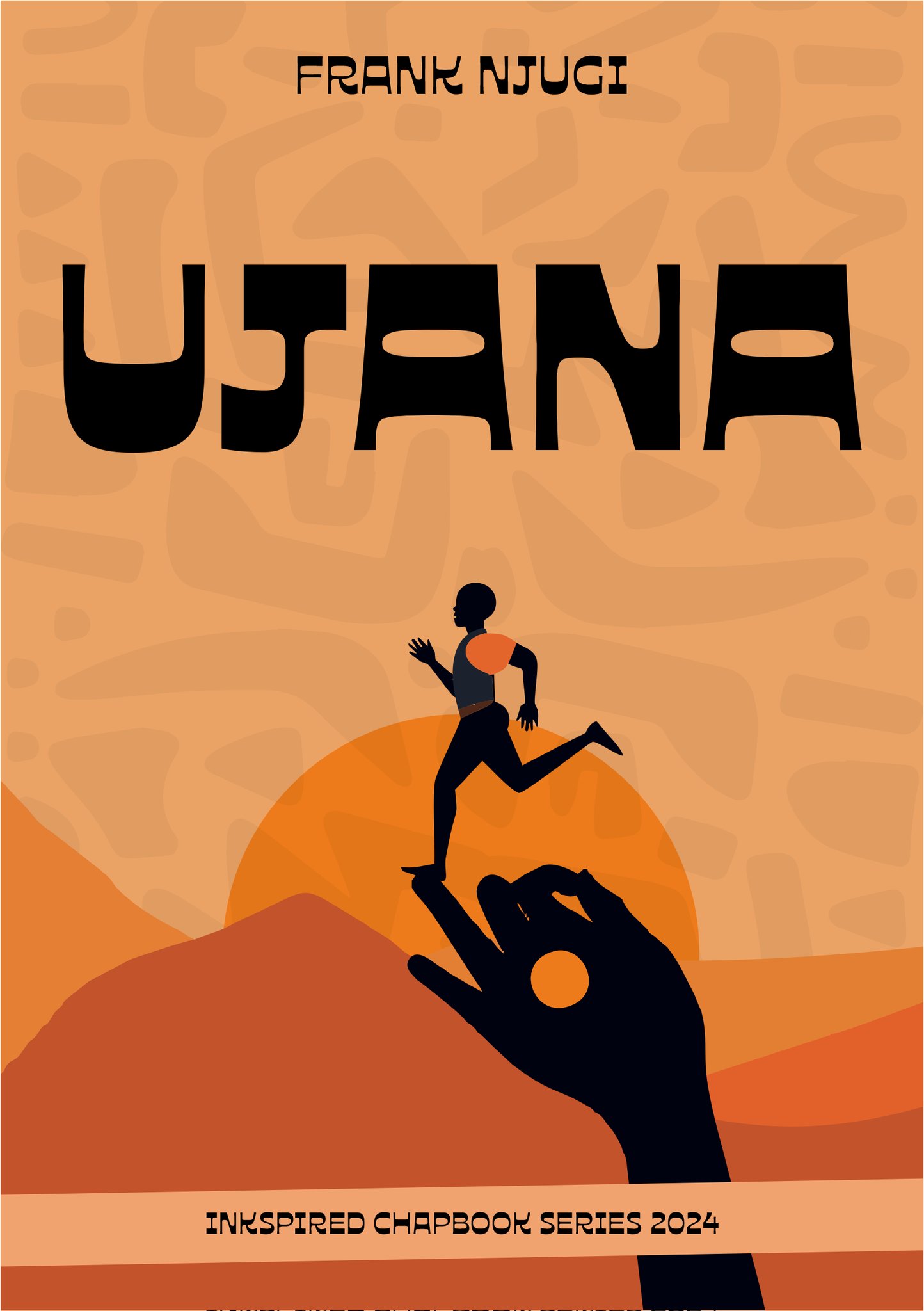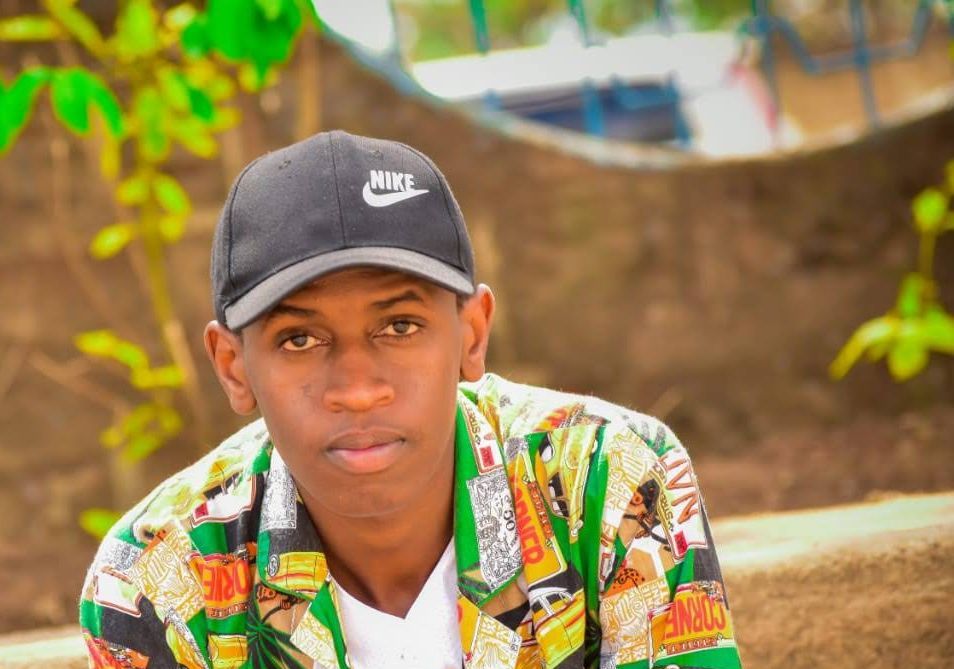Ujana is not just about youth; it is youth. Restless, luminous, fragmented, and brimming with potential.
By Evidence Egwuono
Nzube Nlebedim, in his 2024 debut book, At Night Men Take The Lonely Way Home, a collection of personal essays, takes readers through different locations in Nigeria. From the vibrant metropolitan city of Lagos, to the more peaceful and cold northern city of Jos, readers feel the vibrancy of these locations and how they capture the writer’s experiences, both through the book’s diction and imagery. Similarly, Frank Njugi in his collection of poems, Ujana, writes on youthfulness, survival, and identity as they are interconnected with his place of residence.
Ujana is a meditation on youth, memory, and survival in a Kenyan urban environment, primarily Nairobi, with nineteen poems divided into three thematic parts. Njugi constructs a textured narrative of the young African artist caught between disillusionment and defiance, by drawing from both personal introspection and cultural references.
From the opening lines of the first poem in Ujana, “Bohemian”, the reader is introduced to Njugi’s unique voice which is both experimental and grounded. The poet paints a portrait of the black man as both a subject and object of societal and self-reflection. For instance, the lines “There is something to be said about a black man / who believes that when a diamond / flaws, / it sparkles better…” reflect an awareness of pain being transmuted into beauty, of shame reshaped into artistic expression. This duality in itself becomes the engine that powers many of the poems in the chapbook.

Njugi uses Nairobi as a motif in Ujana. This motif is depicted in various places in the chapbook and as different things: as muse, monster, or nostalgia. The titular poem, “Ujana” encapsulates the chapbook’s central concern: what it means to be a youth in a country that offers little sanctuary for self-exploration or rebellion.
Here, Nairobi is rendered not just as a place but as a villainous character: “for Nairobi is cold…”. Njugi writes, “In my city, the indistinct siren songs are / our groans at being the semblances of a creative chaos…” These lines exemplify the dissonance of youth trying to thrive in a society built to work in contrast.
In “Nairobi, Nairobae, Nairoberry: The Fragmented Reality of City Skins”, Frank Njugi writes on nostalgia and the disillusionment of living in Nairobi, which he employs in highlighting “a city & its fecklessness”. The poem ends with an evocative line that suggests both the alienation and longing that pervades the poet’s view of the city: “Only in a memory of a voice am I at home”.
The second part of Ujana goes deeper into internality, bordering on the surreal and confessional. “Insolence,” “Bard Song,” and “Portrait of the Voices in My Head as the Animal Mount for My Lovers” traverse emotional terrain with metaphysical flair. Here, the poet becomes more daring with language and form, using enjambments, parentheticals, and slashes to mirror mental fragmentation and layered identity. “Self-Portrait as Plurality” explicitly addresses this multiplicity of self:
& when romance becomes a ghat that leads me/us / into piety…
The constant oscillation between singular and plural pronouns in this poem suggests the self as home to conflicting desires,
Yet, despite the experimentation, Ujana never feels inaccessible. The poet’s references—to Anne Sexton, Caravaggio, María Meléndez, Wole Talabi, and others—position the chapbook within a global poetic stage while nonetheless maintaining a distinctly Kenyan voice.

In “AfricanFuturism” written after Wole Talabi, Njugi opens up a speculative dimension. The poem celebrates African spiritualities, mythologies, and futurities without romanticising them. “For this is the land of spiritualities, a young blood is the canvas of ethereality”, he writes. This line speaks to how the younger generation–youths– are the vessel for cultural and spiritual legacies.
Structurally, the poems in Ujana are arranged to offer an emotional and intellectual arc; from the outer world of city life and societal expectation to the inner turmoil of selfhood and finally to a broader philosophical rumination. The progression is seamless, and each section feels necessary to the whole.
The use of Swahili phrases and Kenyan slang, such as in “Ngorii Kwa Sana”, grounds Ujana in its cultural specificity but without alienating non-Kenyan readers. Instead, these enrich the chapbook, by offering glimpses into the poet’s world and the linguistics of his identity and belonging. Moreover, the musical references (Benga, sax solos, bard songs) give the poems an auditory effect, which is a subtle reminder that poetry can be read and also heard and felt.
Ujana tells us that youth is not a phase to overcome but a phase of perpetual struggle, joy, and self-invention. The chapbook’s emotional honesty, and cultural rootedness make it not just a collection of poems but a coming-of-age document, a city diary, a spiritual manifesto, and a poetic odyssey all in one. Ujana is not just about youth; it is youth. Restless, luminous, fragmented, and brimming with potential.
Evidence Egwuono Adjarho is passionate about African literature and dedicates her time to amplifying it through book reviews and video contents. She is currently undergoing training as a photographer. Connect with her on Instagram, X, Facebook, and LinkedIn: @evidence_egwuono




